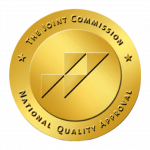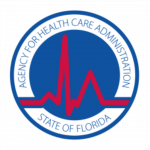Below are answers to the most commonly asked questions when trying to comprehend the meaning behind addiction.
Q. What is Addiction
Addiction is a chronic relapsing brain disease that causes compulsive substance abuse. It is characterized by self-destructive behavior, impulsive decision-making, and a decreased ability to control the use of alcohol or other substances. It is considered both a complex brain disorder and a mental illness.
Q. Is Addiction a Disease
Addiction is a chronic disease of the brain that causes compulsive substance abuse. Addictive disorders affect both brain chemistry and behavior. Although they are not the same thing, addiction should be viewed as part of a spectrum of diseases rather than as distinct conditions with different causes.
The other mental disorders on this spectrum include depression, anxiety disorders, obsessive-compulsive disorder (OCD), and eating disorders. The brain of an addict has been genetically and chemically altered by substance use or abuse, turning a once normal person into the shell of his former self. In some ways, it is like a computer virus that has corrupted a user’s hard drive.
Q. Can Addiction Lead to Other Mental Health Disorders
Yes. Although addiction itself can be a mental health disorder, it also leads to other disorders. People who are addicted often have serious mental and physical problems that require treatment. Alcoholism is known to lead to depression, anxiety disorders, and antisocial personality disorder. Addiction also increases the risk of suicide as addicts become more desperate with the effects of their disease.
Q. Can Anyone Become Addicted
Just as not everyone who smokes will get lung cancer, not everyone who uses alcohol or drugs becomes addicted. However, no one is immune to addiction – it can happen to anyone. Addiction can affect all ethnic groups, races, and socio-economic classes. The probability of developing an addictive disorder is increased by having one or more close relatives with alcoholism or other drug problems.
Q. What are Some of the Risks of Addiction
Addiction is a very dangerous disease that can lead to serious health repercussions and sometimes even death. Some of the more common problems associated with addiction include brain damage, heart disease, liver failure, seizures, depression, anxiety disorders, malnutrition, infections from unsafe injection drug use or needle sharing, and neural damage.
The risk for developing an addiction also increases with the use of intravenous drugs. Health problems associated with needle sharing include HIV/AIDS, hepatitis B and C infections, and lung disease from sniffing heroin.
In addition to causing physical health problems, addiction can destroy relationships. It is one of the leading causes of divorce and child custody cases in this country.
Q. How Do I Know If I am an Addict
The only person who can answer that question of whether you are addicted is yourself. It is easier to go about life telling yourself you don’t have a problem. Or telling yourself the common lie, “I can stop whenever I want.” Only when you have finally admitted to yourself and obtained help for your addiction can you truly begin to recover from it.
However, there are some signs or patterns to look for in other people that might indicate they have an addictive disorder:
- Frequent use of alcohol or drugs
- Trouble with the law caused by alcohol or drug use
- Social, family, work, school, or legal problems because of alcohol or drug use
- Financial problems related to alcohol and drugs (inability to pay bills, stealing)
- Frequent blackouts because of drinking episodes
Q. Is There a Cure
Unfortunately, there is no cure for addiction. However, are many treatments to help you recover from alcohol or drug abuse. These include 12-step programs, psychotherapy, inpatient and outpatient treatment centers, and support groups. It is also important to understand that there are no magic pills or formulas for the elimination of addiction. Treatment and recovery take time and effort, but there are helpful tools that treatment centers, like Harm Reduction Center, can teach along the way.
Q. Can Anyone Recover From an Addiction
The answer is yes. With the help of a support network including family, friends, and therapists or counselors who specialize in addiction recovery. It takes time (sometimes several years), continued one on one or group therapy, and sticking to a recovery program. However, it is definitely possible. The Experts at Harm Reduction Center are here to help you through the recovery process every step of the way.














